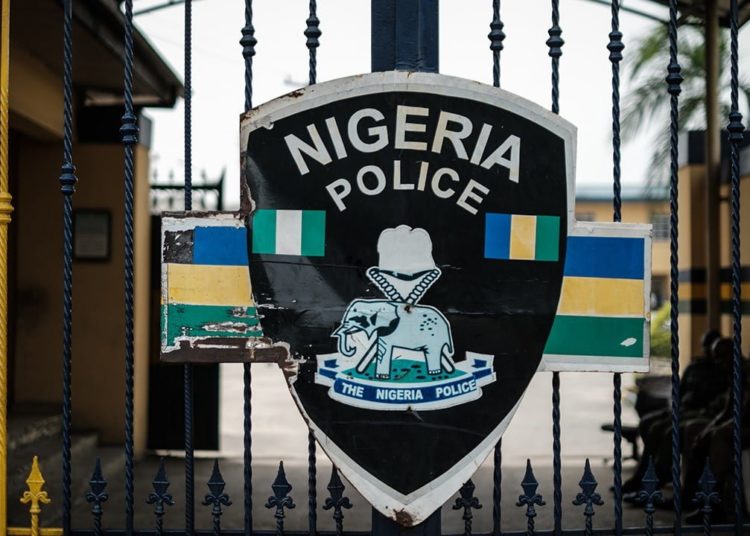One of the most sacrificial institutions in Nigeria is the Nigerian Police, men, and women of this no thank you entity faces perhaps the worst reference in the catalogue of a dignified workforce. They are greeted with sneers and jeers by the same society that they deprived their comfort to serve. They get the least attention in terms of welfare and working conditions. Take an indolent hike to any police station around you and see the scorn that stares at you. You can‘t find any trace of decent comfort , same way their barracks are disgusting cynosure of abodes. They live in the worst of decent habitation. Why did critical and very important actors of the Nigerian establishment get reduced to such a pitiable state?
In Nigeria, a nation that deserves effective law enforcement and a sense of security, the state of the Nigerian police force stands as a somber reminder of unfulfilled promises. Plagued by numerous challenges, this once-respected institution has become a laughing stock, drawing widespread criticism and shaking public trust. The pitiable state of the Nigerian police force calls for urgent reform and a collective commitment to address its deep-rooted issues.
How do you get a respected police force when the men you parade as personnel are poorly trained in the act of policing? There is no dragging the argument that the police get the worst kind of training that prepares them for effective policing. Place a soldier on the same wavelength of measurement with a policeman who got exposed to the same training, the result you will get is a contradictory reality.
A professional police force is essential for maintaining law and order. However, the Nigerian police force has suffered from a deficiency in training and a lack of emphasis on professionalism. This has manifested in instances of misconduct, unprofessional behavior, and a diminished level of service to the public. The absence of a strong professional framework has contributed to a growing perception of ineptitude and incompetence.
Followed in a suit of the pitiable forte of the Nigerian police is the embarrassing ethos inherent in most of their personnel. The police gravely reduced its ethos to an institution that is greedily infatuated with money than the call for service. The police can take money even from the dead, this malady has cost the force a large chunk of respect from the members of the public. Corruption has been a significant issue within the Nigerian police force. Reports of police officers engaging in bribery, extortion, and other forms of misconduct have been widespread. This has eroded public confidence in the police and created a negative perception of the force.
Human rights abuses: There have been reports of human rights abuses committed by the Nigerian police, including extrajudicial killings, torture, and arbitrary arrests. These actions have further tarnished the reputation of the force and raised concerns about the misuse of power.
Poor public relations: The Nigerian police force has struggled with its public image and communication strategies. Instances of police misconduct or mishandling of situations often receive significant media attention, amplifying negative perceptions. Additionally, the lack of effective public relations campaigns and community engagement programs has contributed to a disconnect between the police and the public.
Lack of accountability: There has been a perception of impunity within the Nigerian police force, with few officers being held accountable for their actions. This lack of accountability has reinforced the notion that the police can act with impunity, further damaging public trust. Just when the nation rose in fierce condemnation of Seun Kuti when he assaulted a police officer on the third mainland bridge in Lagos, in the same Lagos came a chilling video of policemen clubbing a bike man. The grotesque image further gave credence to the uncultured manifestation of some men of the Nigerian police.
Reports of human rights violations by the Nigerian police force, including extrajudicial killings, torture, and unlawful arrests, have been frequent. Such actions not only violate the rights of citizens but also foster fear and mistrust toward law enforcement agencies. The lack of accountability for these abuses perpetuates a cycle of impunity.
It‘s important to note that not all police officers in Nigeria are involved in misconduct, and there are dedicated professionals within the force. However, these systemic issues have led to a general perception of the Nigerian police force being reduced to a pitiable laughing stock. Efforts are being made to address these challenges, such as police reforms and initiatives to improve training, transparency, and accountability within the force.
It is important to recognize that the challenges faced by the Nigerian police force are complex and deeply rooted. Addressing these issues requires a comprehensive approach that involves structural reforms, improved training and resources, enhanced accountability mechanisms, and a focus on community policing. Efforts to reform the police force and rebuild public trust are ongoing, but it will require sustained commitment and support from both the government and the society as a whole to bring about meaningful change.
So, the Nigerian Police, before you are further slapped , you must up your game, be more professional, deliberate and purposeful. Only by these, you will be taken serious by the society.




